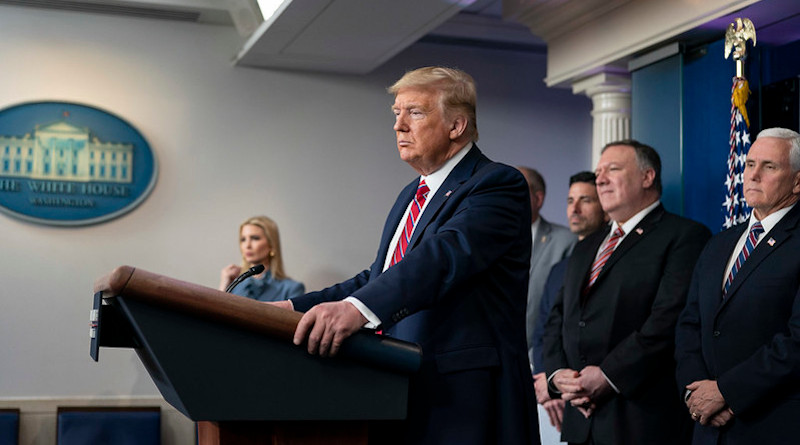Lessons From The Coronavirus: Inadequate Globalization – OpEd
The outbreak of coronavirus pandemic across the globe has definitively burst asunder the arcane nationalistic ideologies that, as in the case of US under President Donald Trump, have taken violent forms against globalization.
The sheer hollowness of “America first” has been put on full display by this pandemic, which traverses national borders like an express runaway train, and which cannot possibly be stopped at a national border, irrespective of how some nations try to turn themselves into impregnable fortresses, and requires collective effort on a world scale, much like the climate change issue, which confronts the whole world as an impending existential threat.
Indeed, if the coronavirus pandemic has taught us anything is the futility of trying to find national solutions for a problem that is inherently global in nature and, therefore, requires a globalized response, e.g., a global health strategy. Faced with the dire predicament of global health insecurity stemming from this pandemic, the world community should, logically speaking, view it as a common problem, instead of succumbing to the laps of xenophobia reflected in Trump’s portrayal of Covid-19 as a “Chinese virus.”
Such semantic manipulations of an infectious disease simply aggravate the problem and fuel a politics of resentment and mutual hostility.
Yet, what the world needs is the basic recognition of the pandemic as a problem for humanity that can recycle itself if temporarily mitigated and or suppressed in one or few nations and yet persisting among others. It calls for unbiased and generous humanitarian assistance across the borders, vividly demonstrated by China’s dispatch of tons of medical supplies as well as medical experts to Italy and elsewhere, compared to the tepid response by the European Union and, worse, the self-centered reaction of the US government.
Sadly, the Trump administration, stubbornly clinging to its ossified nationalistic ideology, refuses to lift the sanctions on such countries as Iran, Cuba, Venezuela, and North Korea, at least for the duration of the pandemic. As a result, in places like Iran, hard hit by the pandemic, the government has scarce resources to battle the virus, which has spread to Iran’s neighboring countries such as Iraq, home to thousands of US military personnel.
This is a ‘road not taken’ from the perspective of global health, bound to affect the US mainland, irrespective of how Washington seeks to exploit Iran’s vulnerabilities to cause a regime change.
Yet, a prudent US response, completely missing at the moment, is needed, one that operates by humanitarian standards as well as US’s own national interests, dictating urgent action to combat the pandemic beyond the US’ borders.
Indeed, a review of Trump administration’s multiple failures, such as weeks of denial and failure to take the threat seriously and thus failing to make the necessary preparations, shows that fundamental US national interests have been harmed by this administration and its egregious shortcomings.
But, perhaps no shortcoming is greater than realizing that US national interests in today’s complex globalized context extend to transnational issues and therefore omitting them as Trump has done is a major disservice to American interests.
Henceforth, in light of the upcoming US elections, it is imperative for US politicians to embrace a new understand, and commitment, to global issues, which are in a certain way germane to US national interests, such as global health security in the age of global pandemics.
Similarly, the European nationalist/populist parties and their leaders, as well as the Brexit advocates in UK and beyond, should draw an important historic lesson from this pandemic, requiring a timely ideological adjustment in favor of globalism and globalization, which is inherently better suited to tackle the multiple problems of a pandemic, including the economic downturn triggered by it.
Those who fail to understand and embrace this important historic lessons are doomed to repeat their past mistake and thus contribute to the present day insufficient globalization, as a result of which humanity as a whole has had a sub-optimal response to it so far.


World communism under the Chinese model? Technocracy Rising (the book) only problem is when the government does something it ends up costing about one hundred times more than the private sector, so everybody ends up starving, not just some.